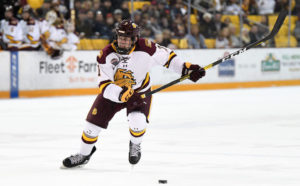
Binge eating is one sign of an athlete having an eating disorder. (Getty Images)
One of the most well-known and least-discussed problems among athletes is the existence of adverse nutritional disorders in sports. I refer to this loosely because it takes a very specialized professional to assess and diagnose eating disorders versus disordered eating.
These days, when fad diets and food trends flood our social media feeds, it is difficult to dissect behaviors that will help us, versus those that will do us harm.
Non-disordered eating is the point at which an athlete carefully consumes food when hungry and can stop ingesting food when full. Furthermore, they can successfully employ healthy nutrient diversity into their eating regimen without palatal restriction or emotional limitations.



